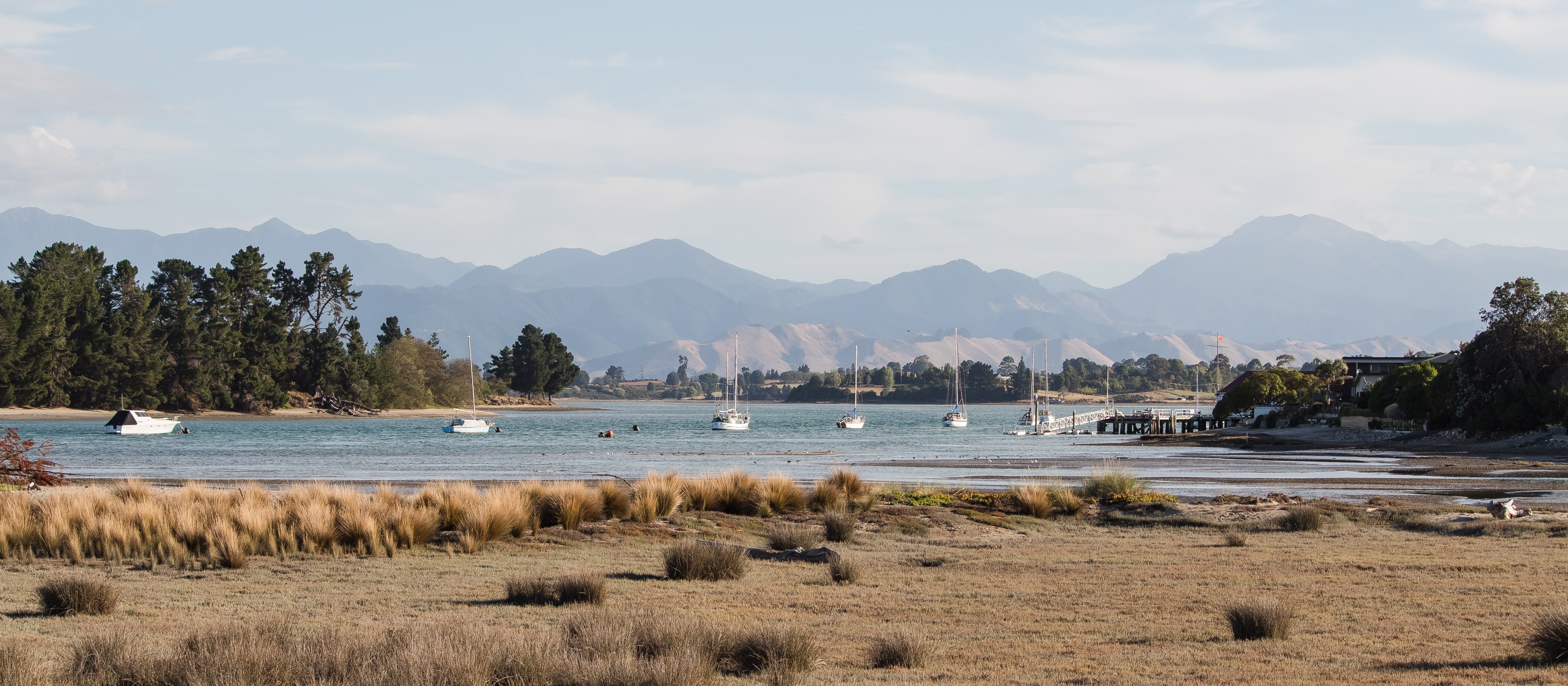Respiratory physician Lutz Beckert considers chronic obstructive pulmonary disease management, including the prevention of COPD, the importance of smoking cessation and pulmonary rehabilitation, and the lifesaving potential of addressing treatable traits. He also discusses the logic of inhaler therapy, moving from single therapy to dual and triple therapy when indicated, as well as other aspects of management
Legal oddities exposed as small town wins liquor licensing case
Legal oddities exposed as small town wins liquor licensing case

Legal interpretation does have a hierarchy. It’s based on the “biggus diccus” principle
Four long years have passed since the Tasman District Licensing Committee (DLC) last turned down a liquor license application.
Not one bar, club, pub, bottle store or even cellar door has been denied a right to open, that is until late last month when the said committee announced that Nelson Holdings Limited’s (aka Super Liquor) application to open a bottle store in Mapua had failed.
Yes, we done it. The locals were cock-a-hoop. All that time and effort, incessant Zoom meetings, training sessions, literature searching, evidence appraisals, interviews, pages of briefs of evidence and even placard protests had borne fruit for this little village of 2000, once better known for having the Mainland’s only nude beach.
The time, work and energy required had been enormous, as was the luck.
Luck that the objectors, all 84 of us, had the capability and time to stand up and be heard, and luck that one of our team had found some very good legal support, for without two key legal players, namely Dr Liz Gordon and Grant Hewison from Communities Against Alcohol Harm (CAAH), a charity whose prime focus is helping communities in deprived areas oppose alcohol harm, we would have been dead meat in the face of the onslaught of the liquor baronets and their lawyers.
From a personal perspective as an objector, the whole process threw a harsh light on the very, very different ways in which society’s two most important professions, law and medicine, regard and use evidence.
For doctors, nurses, pharmacists and paramedics, evaluating quantitative evidence and applying it to the real world of the person before us, is what we do. We do the same for their families, friends and everyone else up to the whole nation, and then more.
We catagorise the evidence using systematic processes of hierarchical evaluation, processes that are replicable, reliable and continually reevaluated, like all science and then apply it to the real world, using that ultimate tool in translatability, mathematics. 1+1=2 irrespective of context, culture or belief system.
In total contrast, the legal arguments I was privy to witness seemed to be based on the very factors critical appraisal tries to eliminate, while being conducted in a world seemingly remote from reality.
An alcohol licensing hearing may not feature the archaic regalia and terms of higher courts, but the process is still unreal and witnesses are still cross-examined, oaths taken and gnostic legal arguments sprayed about above the heads of the Greek chorus of gathered mortals, there to stop further damage to their community from New Zealand’s most harmful drug.
Sure, a lot of the evidence presented at the hearing was scientific, but the legal interpretation and arguments on applicability of that evidence was not.
Numeric data was inevitably qualified by words and phrases that mean different things to different people. As an exercise, I read the applicant’s closing submission searching for references to the magnitude of variables such as harm, risk, likelihood and reduction. Of these there was no shortage but not once was a numeric figure used to support his postulates.
Legal interpretation does have a hierarchy. It’s based on the “biggus diccus” principle. The more learned the utterer, the stronger the argument.
There are no shortage of such utterances and they have no “use by” date. Thus, cherry picking is rife and finding something good to fit your own argument is just par for the course. Does the legal profession do systematic reviews? Not according to Bond University.
It was insomnia that drove me to read the closing submission of SuperLiquor’s counsel. Like a charm it worked. I was off in dreamland in a tick, for any connection it may have had with the real world vanished with each sentence.
The arguments in the Licensing Committee’s findings were, in contrast, somewhat comprehendible but did nothing to counter the common-sense reality, namely why even have a four-day hearing with all the rigmarole, paraphernalia and cost, when there are 84 objectors to a bottle store.
That, unfortunately, reminded me of High Court Justice Cooke's decision in 2021 that
“proof to the standard required by science is not required”
and that
“the application of common sense to what is known, even though what is known may be deficient from a scientific point of view”
This was in reference to the case of the four non-vaccinated aviation border workers brought by that well known anti-vaccine lawyer and politician Sue Grey. I’m sure she could debate common sense until the cows come home.
Anyway, if your community is being invaded by more bottle stores, call in the CAAH cavalry at contact@communitiesagainstalcoholharm.co.nz
Jim Vause is an "emeritus" GP living in Māpua, Tasman
We're publishing this article as a FREE READ so it is FREE to read and EASY to share more widely. Please support us and our journalism – subscribe here
One of the benefits of subscribing is you will also be able to share your thoughts about what you read with other in our Comment Stream. You can also take notes on what you read with Capture








![Barbara Fountain, editor of New Zealand Doctor Rata Aotearoa, and Paul Hutchison, GP and senior medical clinician at Tāmaki Health [Image: Simon Maude]](/sites/default/files/styles/thumbnail_cropped_100/public/2025-03/Barbara%20Fountain%2C%20editor%20of%20New%20Zealand%20Doctor%20Rata%20Aotearoa%2C%20and%20Paul%20Hutchison%2C%20GP%20and%20senior%20medical%20clinician%20at%20T%C4%81maki%20Health%20CR%20Simon%20Maude.jpg?itok=-HbQ1EYA)
![Lori Peters, NP and advanced health improvement practitioner at Mahitahi Hauora, and Jasper Nacilla, NP at The Terrace Medical Centre in Wellington [Image: Simon Maude]](/sites/default/files/styles/thumbnail_cropped_100/public/2025-03/2.%20Lori%20Peters%2C%20NP%20and%20advanced%20HIP%20at%20Mahitahi%20Hauora%2C%20and%20Jasper%20Nacilla%2C%20NP%20at%20The%20Terrace%20Medical%20Centre%20in%20Wellington%20CR%20Simon%20Maude.jpg?itok=sUfbsSF1)
![Ministry of Social Development health and disability coordinator Liz Williams, regional health advisors Mary Mojel and Larah Takarangi, and health and disability coordinators Rebecca Staunton and Myint Than Htut [Image: Simon Maude]](/sites/default/files/styles/thumbnail_cropped_100/public/2025-03/3.%20Ministry%20of%20Social%20Development%27s%20Liz%20Williams%2C%20Mary%20Mojel%2C%20Larah%20Takarangi%2C%20Rebecca%20Staunton%20and%20Myint%20Than%20Htut%20CR%20Simon%20Maude.jpg?itok=9ceOujzC)
![Locum GP Helen Fisher, with Te Kuiti Medical Centre NP Bridget Woodney [Image: Simon Maude]](/sites/default/files/styles/thumbnail_cropped_100/public/2025-03/4.%20Locum%20GP%20Helen%20Fisher%2C%20with%20Te%20Kuiti%20Medical%20Centre%20NP%20Bridget%20Woodney%20CR%20Simon%20Maude.jpg?itok=TJeODetm)
![Ruby Faulkner, GPEP2, with David Small, GPEP3 from The Doctors Greenmeadows in Napier [Image: Simon Maude]](/sites/default/files/styles/thumbnail_cropped_100/public/2025-03/5.%20Ruby%20Faulkner%2C%20GPEP2%2C%20with%20David%20Small%2C%20GPEP3%20from%20The%20Doctors%20Greenmeadows%20in%20Napier%20CR%20Simon%20Maude.jpg?itok=B0u4wsIs)
![Rochelle Langton and Libby Thomas, marketing advisors at the Medical Protection Society [Image: Simon Maude]](/sites/default/files/styles/thumbnail_cropped_100/public/2025-03/6.%20Rochelle%20Langton%20and%20Libby%20Thomas%2C%20marketing%20advisors%20at%20the%20Medical%20Protection%20Society%20CR%20Simon%20Maude.jpg?itok=r52_Cf74)
![Specialist GP Lucy Gibberd, medical advisor at MPS, and Zara Bolam, urgent-care specialist at The Nest Health Centre in Inglewood [Image: Simon Maude]](/sites/default/files/styles/thumbnail_cropped_100/public/2025-03/7.%20Specialist%20GP%20Lucy%20Gibberd%2C%20medical%20advisor%20at%20MPS%2C%20and%20Zara%20Bolam%2C%20urgent-care%20specialist%20at%20The%20Nest%20Health%20Centre%20in%20Inglewood%20CR%20Simon%20Maude.jpg?itok=z8eVoBU3)
![Olivia Blackmore and Trudee Sharp, NPs at Gore Health Centre, and Gaylene Hastie, NP at Queenstown Medical Centre [Image: Simon Maude]](/sites/default/files/styles/thumbnail_cropped_100/public/2025-03/8.%20Olivia%20Blackmore%20and%20Trudee%20Sharp%2C%20NPs%20at%20Gore%20Health%20Centre%2C%20and%20Gaylene%20Hastie%2C%20NP%20at%20Queenstown%20Medical%20Centre%20CR%20Simon%20Maude.jpg?itok=Z6u9d0XH)
![Mary Toloa, specialist GP at Porirua and Union Community Health Service in Wellington, Mara Coler, clinical pharmacist at Tū Ora Compass Health, and Bhavna Mistry, specialist GP at Porirua and Union Community Health Service [Image: Simon Maude]](/sites/default/files/styles/thumbnail_cropped_100/public/2025-03/9.%20Mary%20Toloa%2C%20Porirua%20and%20Union%20Community%20Health%20Service%20in%20Wellington%2C%20Mara%20Coler%2C%20T%C5%AB%20Ora%20Compass%20Health%2C%20and%20Bhavna%20Mistry%2C%20PUCHS%20CR%20Simon%20Maude.jpg?itok=kpChr0cc)